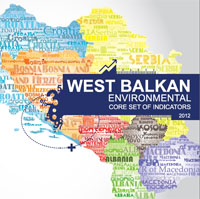Starting from 2020, the National Bank is constantly taking more measures and activities to encourage the green transformation of our economy. Inter-institutional cooperation, a coordinated national approach and building systems for greater resilience and mitigation of damages is essential for dealing with climate change, which is identified as the biggest risks in the world in the short and long term. At the meeting held at the National Bank between the Governor of the National Bank, Anita Angelovska-Bezoska and the Minister of Environment and Physical Planning, Kaja Shukova, cooperation between the institutions was agreed, which will consist of the exchange of relevant information and data for the preparation of quality analyzes and policies.
The effects of climate change affect all social spheres, including finance, which is why an increasing number of central banks include in their mandate the activities to deal with climate change and support the green transition. At the meeting, the governor emphasized that the National Bank fully recognizes the importance of climate risks, both for the economy as a whole, and for the financial system, and within its competences, and has been regularly taking measures for the past few years. “Recently, we adopted the first Mid-Term Plan of the National Bank’s аctivities in the domain of climate risk management. To strengthen the resilience of the banking system to climate risks, we have established statistics on green financing and adopted Guidelines for banks on how to manage risks related to climate change. We also made and published the first analyzes of the banking system’s exposure to physical and transition risks related to climate change, which are based on currently available data in this domain,” the governor said.
“We are pleased by the fact that the issue of a coordinated response to the threats from climate risks is gaining more and more importance and is becoming part of the strategic determinations of the National Bank, especially when it comes to their preventive recognition and adequate financing. In the future activities of the Ministry, the development of inter-institutional cooperation and the support of the activities for adopting criteria for sustainable and green financing, as well as the exchange of data and information, will continue,” Shukova pointed out.
At the meeting, the importance of having quality data for the preparation of analyzes on the potential effects of climate change on the economy and the financial system was highlighted, which requires inter-institutional cooperation with competent institutions such as the Ministry of Environment and Physical Planning. From there, the governor and the minister expressed their commitment to further deepening the cooperation between the two institutions and the exchange of relevant data.





































































